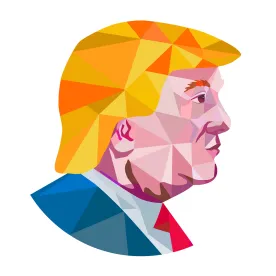On April 20, 2017, President Trump issued a memorandum announcing that the Secretary of Commerce had initiated an investigation to determine the effects of imported steel on national security. The investigation was initiated under Section 232 of the Trade Expansion Act of 1962, as amended.
I. Conduct of Section 232 Investigations
Under Section 232, Secretary of Commerce Wilbur Ross will have 270 days to determine whether steel is being “imported into the United States in such quantities or under such circumstances as to threaten to impair the national security.” Based on the Commerce Secretary’s findings, the President must issue a report to Congress and may take such actions as he deems necessary to “adjust” steel imports “so that such imports will not threaten to impair the national security.”
In his press briefing on this Section 232 action, Secretary Ross promised “at least one and perhaps more public hearings” in connection with the Section 232 investigation. Ross also suggested that the Trump Administration would invite “public commentary” as it “go[es] through the research project” called for by President Trump’s memorandum. Indeed the Section 232 regulations contemplate such public hearings and public commentary. Prior investigations have involved multiple hearings across the United States and permitted both written comments and oral testimony of individuals supporting and opposing the allegations made in the investigation.
According to Secretary Ross’ April 19, 2017 letter to Secretary of Defense James N. Mattis, the investigation report will also include information that the Department of Defense can provide regarding the national defense requirements for steel. Such consultations with the Secretary of Defense are also contemplated in the Section 232 statute and regulations.
Section 232 has previously been invoked in connection with imports of items such as machine tools, uranium, and ceramic semiconductor packaging. The Nixon and Ford Administrations took action in connection with Section 232 in response to oil imports, and these actions were subject to a challenge in federal court. Use of Section 232 is rare, however, and the most recent prior investigation concerning iron ore and semi-finished steel dates from 2001. Section 232 is one of several unilateral powers that President Trump may invoke under U.S. law, including Section 338 of the Tariff Act of 1930. Pursuant to Section 232, Section 338, and other statutes, the President has substantial albeit qualified powers to adjust imports by raising tariffs, imposing quotas, or taking other steps.
II. Trump’s Prior Statements and Actions on Global Steel Issues
Yesterday’s action was foreshadowed by numerous statements by President Trump during his campaign for president. As Secretary Ross noted in his press briefing on the Section 232 action, candidate Trump asserted that “[f]oreign nations are dumping vast amounts of steel all over the United States,” and stated that this action was “essentially . . . killing our steel workers and steel companies.” Candidate Trump also promised to “put new American steel into the spine of this country” as part of a general America-first agenda.
The initiation of this Section 232 investigation is only the most recent action that the Trump Administration has taken with respect to trade issues in steel and other raw materials. Just a few days into his presidency, on January 24, 2017, President Trump issued a Memorandum Regarding Construction of American Pipelines that required the Secretary of Commerce to develop a plan to use American material and equipment—including steel—“to the maximum extent possible and to the extent permitted by law” for all new, retrofitted, repaired, or expanded pipelines. Although President Trump issued a Memorandum Regarding Construction of the Keystone XL Pipeline on the same day, administration officials later acknowledged that this pipeline would not be built using American steel.
III. Previous U.S. Action on Global Steel Issues
The Obama Administration also sought to address global steel trade issues. Last November, U.S. government officials discussed steel issues with their Chinese counterparts during the U.S.-China Joint Commission on Commerce and Trade (“JCCT”) meetings in Washington, D.C. A press report of that November 21-23 meeting states that “[e]xcess capacity and structural problems in steel and other industries is a global challenge which requires collective responses.” Pursuant to these JCCT discussions, the Global Forum on Steel Excess Capacity was launched in December 2016.
Even before the JCCT, U.S. agencies had engaged in fact-finding with respect to global steel trade issues. In April 2016, U.S. agencies convened public hearings concerning “Policy Recommendations on the Global Steel Industry Situation and the Impact on U.S. Steel Industry and Market.” The United States has also engaged internationally on steel capacity issues. On April 11, 2016, the U.S., Canada, and Mexico released a joint statement calling for effective and immediate commitments to address “global steel excess capacity.” Shortly thereafter, on April 18, 2016, the Belgian government and the OECD hosted a meeting in Brussels of senior officials and private sector representatives from the U.S., China, and around 30 other countries to address excess capacity in the steel sector. The United States has also been party to numerous steel-related disputes at the World Trade Organization.
* * *
In his April 20 memorandum, President Trump observed that existing efforts to address global steel trade issues had “little meaningful effect” and that these actions had “not substantially alleviated the negative effects” on the American steel industry. While it remains to be seen what actions the Administration might ultimately take pursuant to the findings of the Section 232 investigation, the Administration’s invocation of this rarely used trade tool further suggests the Administration’s interest in “Buy America” strategies.







 />i
/>i

